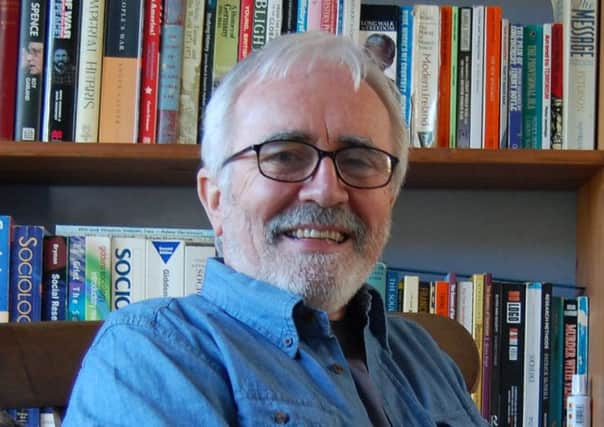A lesson from Mindfulness


All was orderly and serene until she decided to clean out his cage ... with her vacuum cleaner. She opened the little wire door and stuck the nozzle in to sweep up the bits of food and droppings lying on the bottom when accidentally the hapless bird disappeared up the tube and into the body of the machine.
Quick as a flash, she dismantled the cleaner and removed the terrified bird that was covered in dust. She plunged him into a basin of cold water and then blasted him with a hair drier.
Advertisement
Hide AdAdvertisement
Hide AdWhen the lady’s husband returned from his day’s work at the office she related the record of her day at home, including the tale of the disappearing parrot.
‘How is he? Did he survive?’ he asked.
‘Well,’ said she, ‘he’s back in his cage. He has a glazed look in his eyes, and he hasn’t spoken a word since!’
Life can be like that at times. Everything is running sweetly and predictably as if on rails, and disaster strikes: maybe illness or an accident, a business downturn, an unexpected redundancy, or a relationship breakdown, and you stagger and reel from crisis to crisis in the hope that all will be stable again soon.
It’s like being in a river, tossed around like a wet rag doll by the current. You think your feet are about to touch the bottom to give you a modicum of control, but then another torrent side-swipes you and you’re gone again.
Advertisement
Hide AdAdvertisement
Hide AdI have done some work on Cognitive Behavioural Therapy (CBT) and its cousin Mindfulness and have found that these practitioners teach a helpful analogy. Imagine you’re in that river, but instead of being tossed around by the current you are totally at the mercy of your thoughts and fears and threats and worries.
It’s a terrifying place to be. You have no point of reference, no sense of direction, no perceivable hope, but Mindfulness encourages you to scramble out of the river, to stand on the river bank and watch as your problems and thoughts float by.
You’re not at their mercy any longer, you are free to observe, to weigh up possible options and to decide: Is this a situation I can do something about? Yes or no?
If I can do something about it, then I am in a position in which I can take time to develop a strategy. In a sense, you have removed yourself from the problem, not being whipped about by it or by the fears of all the things that can go wrong.
Advertisement
Hide AdAdvertisement
Hide AdAnd on the other hand, if you consider that there is nothing you can do to resolve the difficulty, that it is out of your hands, there’s no point in worrying. You let things run their course.
In other words, your remoteness, the fact that you have separated yourself from your immediate circumstances, allows you to be objective.
Try it. I have found it to be very effective, reminiscent of the prayer of Reinhold Niebuhr: ‘God grant me the serenity to accept the things I cannot change, the courage to change the things I can, and the wisdom to know the difference.’